Valley Bounty: A growing Good Bunch: Shelburne Falls farm remains optimistic for the future
| Published: 05-30-2025 10:02 AM |
‘It’s usually around April 20 when I plant things in the field that can handle light frost,” says farmer Dan Greene of Good Bunch Farm. “Then there’s about a longer wait until the next big planting date in late May. By then the threat of frost is gone and you can finally plant all the warm-loving crops. After that, you really don’t have any time except for weeding and harvesting.”
As the earth turns green around us, many farmers are taking their last big inhale before their fields explode with life, demanding all their attention and then some. This is certainly the case for Dan Greene, who cultivates about five acres at his farm in Shelburne with a few helping hands.
Greene is one of many local farmers who springboarded from the Stockbridge School of Agriculture at the University of Massachusetts Amherst to running their own farm. In Greene’s case, there were several years work and training after graduation before he founded Good Bunch Farm in 2012. He rented land for a while before finally finding his permanent spot in 2018.
“The land itself is pretty good,” he says. “It’s flat, not too rocky, and above the floodplain. We’re pretty far from bigger towns, but we have the advantage of serving this little hub of Shelburne Falls. It’s a bit far for the bigger Valley farms to bother selling to, but it’s a great market for a farm like mine.”
In terms of what he grows, it’s “a whole array of fresh vegetables, a lot of culinary herbs and starter plants too,” says Greene. “For farmers markets especially, it helps to grow a little of everything so I can be a one-stop-shop.”
Farmers markets sales are a big part of Greene’s business, as is true for many smaller farms. Over the past decade, Good Bunch Farm has cemented itself as an important vendor at summer farmers markets in Shelburne Falls (Fridays, 2 to 6:30 p.m. at the corner of Main and Water streets) and Ashfield (Saturdays, 9 a.m. to 1 p.m. on the town common). Both markets are running now through the end of October.
“Shelburne Falls is small but it’s a good market,” says Greene. “It’s walking distance from most of the town and people in the neighborhood definitely come to shop. I’ve been there for as long as I’ve been farming and have a very loyal customer base. Ashfield is about twice as big, and a great gathering place on Saturday mornings.”
For many years Greene only grew for farmers markets and a handful of restaurants and venues. Then, when he finally got land in Shelburne, he opened a self-serve farms stand and was surprised how popular it was.
Article continues after...
Yesterday's Most Read Articles
 My Turn: Spectre of public and affordable as scare tactics
My Turn: Spectre of public and affordable as scare tactics
 Greenfield Police Logs: June 30 to July 7, 2025
Greenfield Police Logs: June 30 to July 7, 2025
 Amherst, Mount Holyoke and Smith colleges named in early admissions suit
Amherst, Mount Holyoke and Smith colleges named in early admissions suit
 Police discuss status of investigation into Greenfield ATM theft
Police discuss status of investigation into Greenfield ATM theft
 My Turn: Spectre of public and affordable as scare tactics
My Turn: Spectre of public and affordable as scare tactics
 Mohawk Trail students to see new staff, new codes of conduct upon Aug. 27 return to school
Mohawk Trail students to see new staff, new codes of conduct upon Aug. 27 return to school
“Sales-wise, it ends up being about the equivalent of doing a third farmers market,” he says.
The stand is open now, offering a variety of early veggies like radishes, arugula and other greens, scallions, and fresh herbs. They also have many different kinds of starter plants for sale, ready for planting in home gardens when the weather is right.
A few things are different this year at Good Bunch Farm. For one, hopefully there will be a lot fewer vegetables lost to hungry deer.
“We recently got a grant from the Farm Viability Enhancement Program at MDAR (the Massachusetts Department of Agricultural Resources) to put up a deer-prevention fence,” Greene says. “Deer are kind of a constant nuisance, and we’ve tried other strategies to stop them, but none really worked.”
That funding, coming from the state of Massachusetts, is not in question, and should result in more local food ending up on Hilltowner’s plates this summer. Meanwhile, many of Greene’s peer farmers were left in the lurch when the federal government canceled other grant programs, breaking promises to compensate farmers for taking care of natural resources, growing food for schools and food banks, and other public services.
“I count myself lucky that I wasn’t pursuing any federal grants right now,” he says, “but even then, I’m still affected. One of the USDA’s programs was compensating us for food we gave to local food pantries – that was really helpful and now it’s gone. If they cut SNAP, that will affect my farm.”
“Having such uncertainty, lack of support, and even combativeness coming from the feds ... it’s not great, I’ll say that.”
Greene is glad that the state of Massachusetts seems much more invested in farms’ survival. Still, states and the private sector do not have the financial resources to make up for the federal government canceling their investments.
“I was actually just at a meeting with state officials who are trying to figure out how the state can help,” he says. “We had a bunch of farmers, people from MDAR, Senator Markey’s office, and some others. It’s great, I just don’t know what their resources can support. It’s not just agriculture but a lot of services being targeted, and a lot of holes to plug, but they want to help.”
As the growing season gets underway, farmers have even less time to lobby for the support they need, because the needs of their animals and seedlings and soon-to-be-planted fields are even more immediate. For the moment, they must trust others to keep speaking up on their behalf.
“I know there’s a lot of community support for farms, and I’m so grateful for that,” says Greene. “It’s always nice to hear that from people at farmers markets.”
Looking ahead to this year, Greene says, “Honestly, I’m just really excited for the deer fence. I feel like the farm is entering a new chapter, getting bigger and better. Hopefully we can have a good productive season.”
Jacob Nelson is communications coordinator for CISA (Community Involved in Sustaining Agriculture). To learn more about local farms, farm stands, and farmers markets opening up hear you, visit buylocalfood.org.

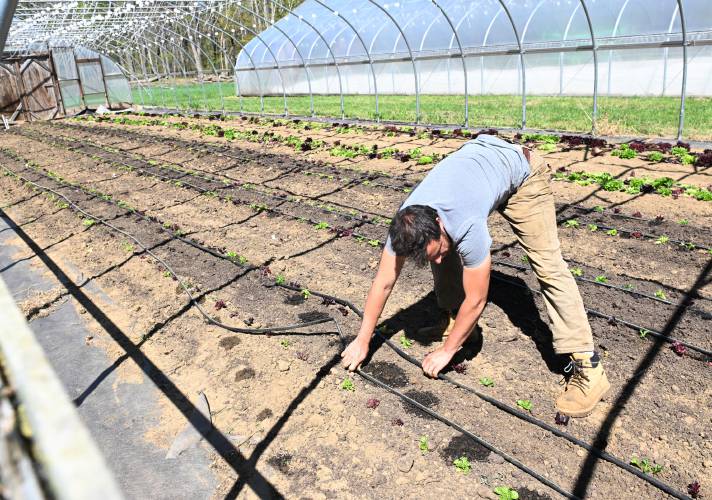
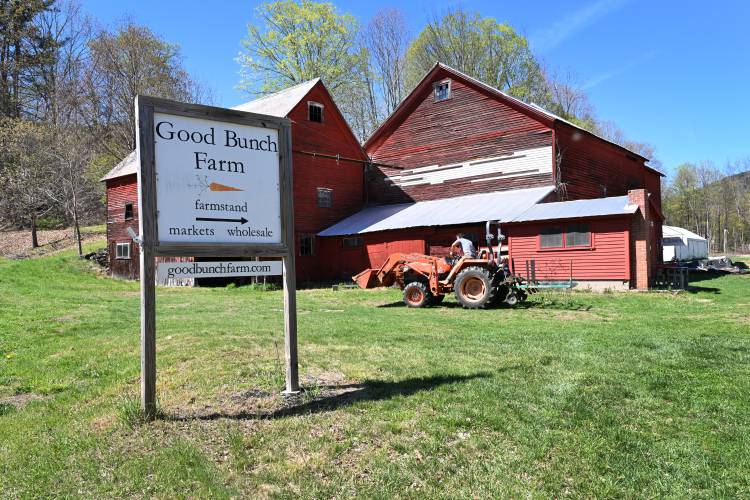
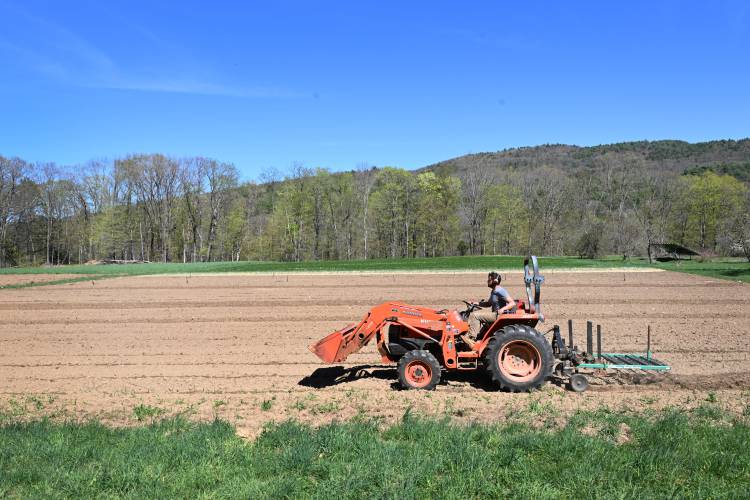
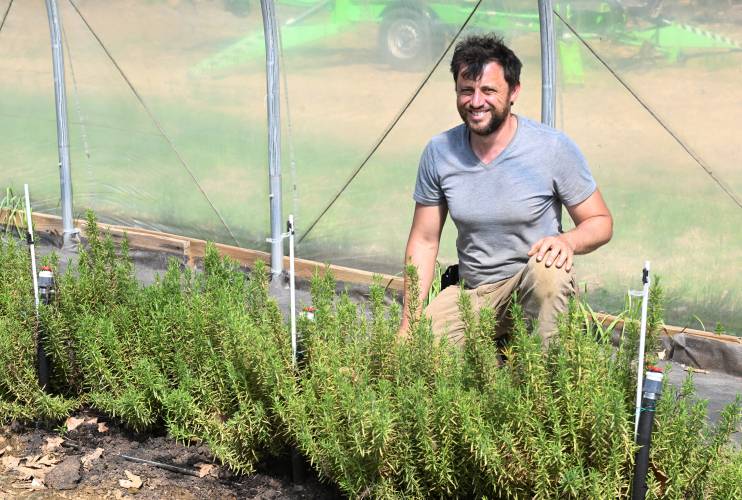
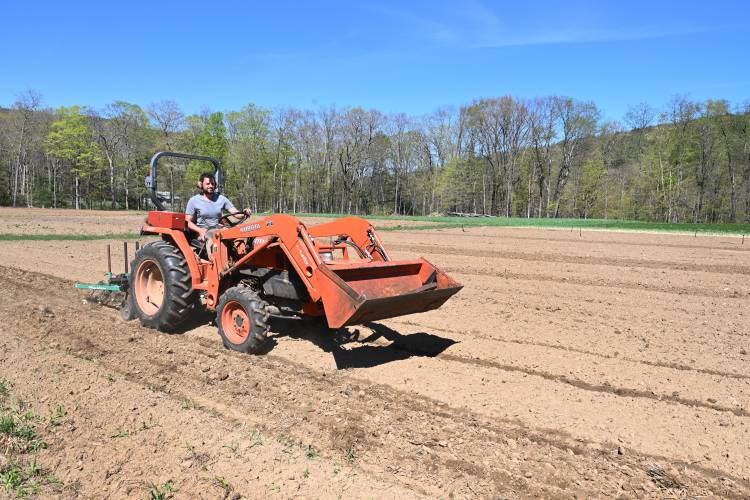
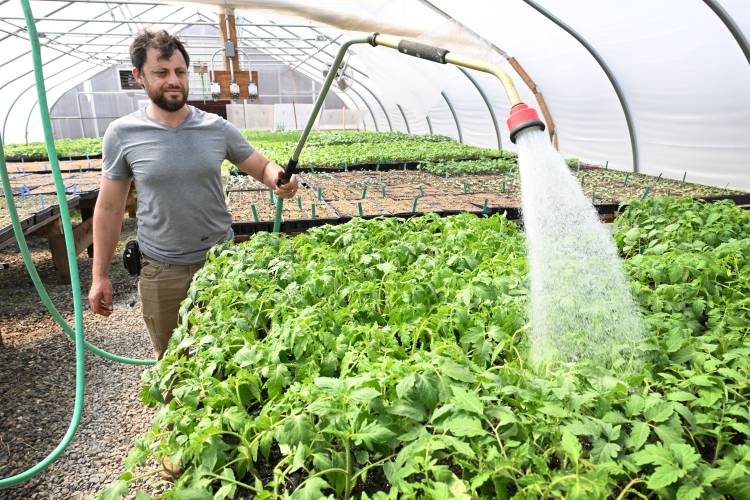
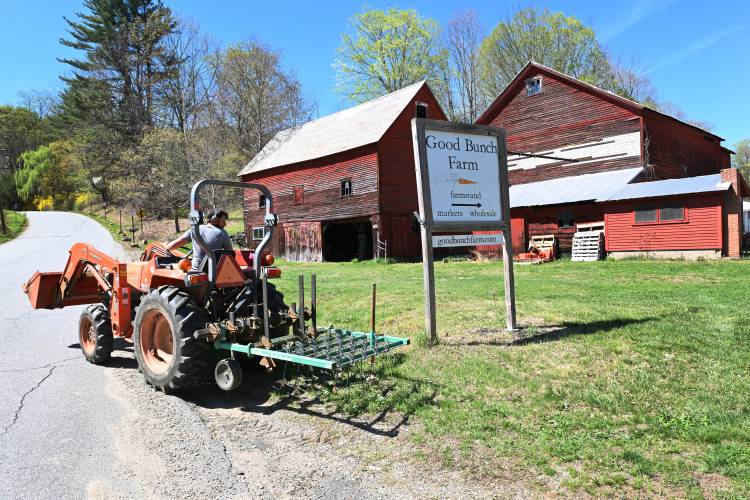
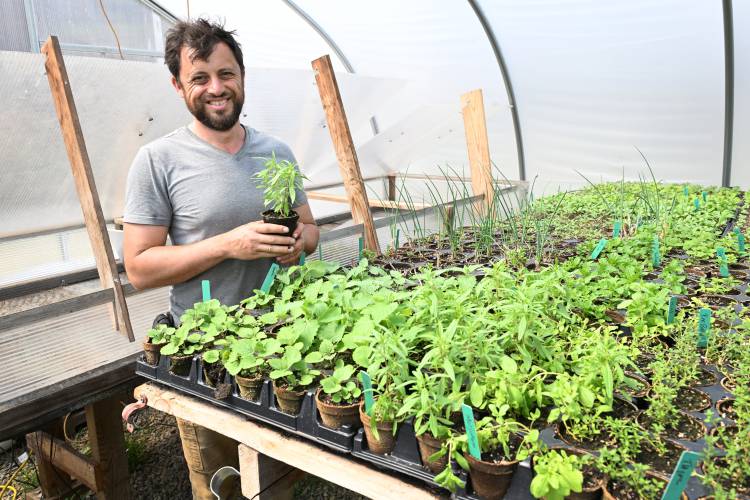





 ‘The freedom to be silly’: Hilltown Youth Recovery Theatre helps campers heal in mid-air
‘The freedom to be silly’: Hilltown Youth Recovery Theatre helps campers heal in mid-air How to grow a creative community: Meet the eight artists selected for CitySpace’s 2025 Pay It Forward program
How to grow a creative community: Meet the eight artists selected for CitySpace’s 2025 Pay It Forward program The melody lingers on: 85 years later, 102-year-old Montague resident to hear Glenn Miller band again
The melody lingers on: 85 years later, 102-year-old Montague resident to hear Glenn Miller band again Let’s Talk Relationships: The joy of feeling like yourself: Transitioning is about authenticity
Let’s Talk Relationships: The joy of feeling like yourself: Transitioning is about authenticity
